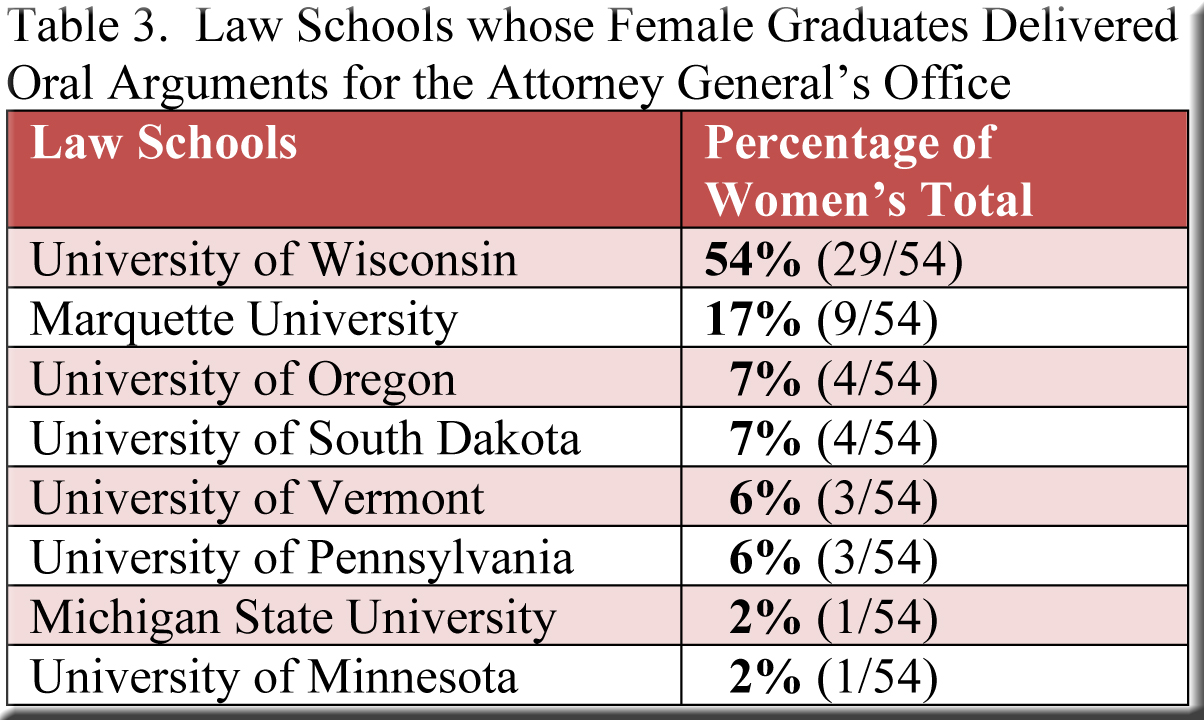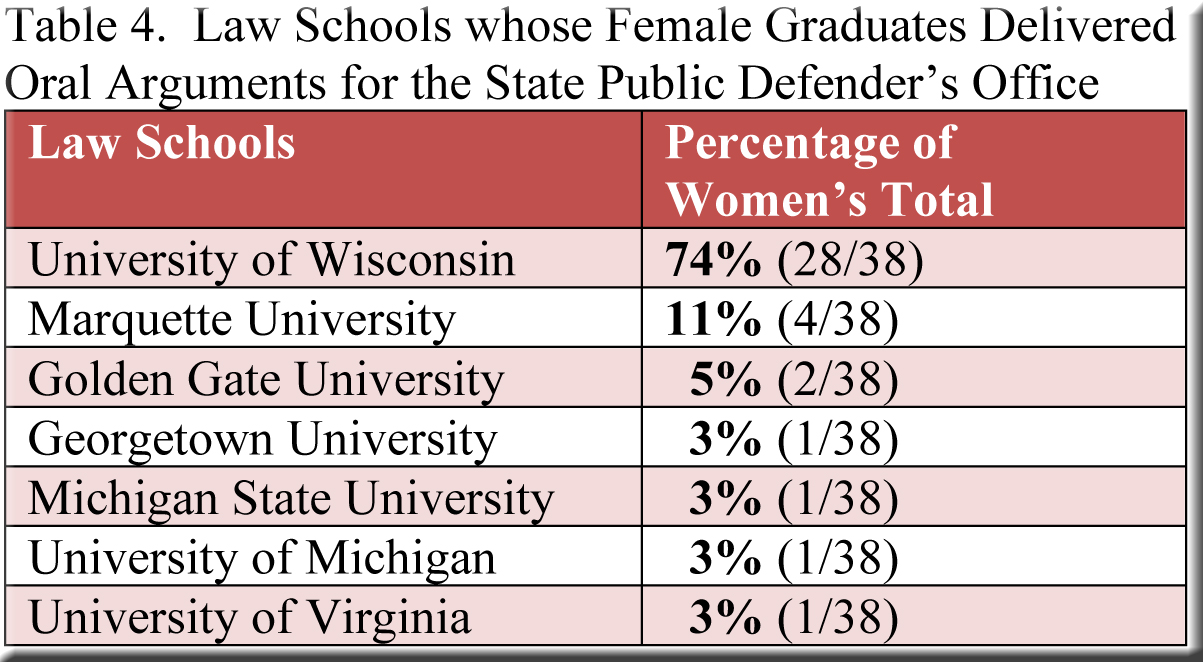Last month’s post on law-school representation rates at the Wisconsin Supreme Court prompted a question regarding women’s portions of the various findings in that piece. We can make some headway with this suggestion, because women accounted for 163 of the oral arguments given during the period—plenty for calculating meaningful percentages.[1]
These 163 arguments (27% of the 604 conducted by men as well as women) were nearly all distributed among the graduates of a handful of law schools—displayed in Table 1, which includes schools whose graduates, male and female, crafted at least six oral arguments (1% of the total of 604).[2]
Now let’s focus on subsets of this group of 163 oral arguments, beginning with the batch conducted by the most active private firms (as opposed to government agencies and non-profits). We’ll recruit the same set of 18 firms featured in the previous post—that is, those whose attorneys (male and female) carried out at least four oral arguments in cases decided from 2014-15 through 2018-19.[3] Women delivered 19 of the 101 arguments in this category, and the law schools that trained them are listed in Table 2.
Table 2 shows that the University of Wisconsin can be credited with educating the lawyers responsible for over half (58%) of the 19 oral arguments offered by women employed at the 18 private firms, and when we turn our attention to oral arguments by the Attorney General’s Office (Table 3), we find the University of Wisconsin claiming almost exactly the same share.[4] More specifically, of the 54 arguments by female Assistant Attorneys General, 29 (54%) came from women who had graduated from the law school at the University of Wisconsin.
Nothing of the sort may be said regarding the University of Wisconsin’s part in preparing the women who stood before the justices as attorneys for the Solicitor General’s Office. Indeed, not a single lawyer—male or female—deployed in this capacity by the Solicitor General had passed through the law schools of either the University of Wisconsin or Marquette. Instead, the women entrusted with these principal roles by the SG’s leadership had cut their legal teeth at Notre Dame and Yale.[5]
If women from the University of Wisconsin’s law school found no opportunities to speak for the Solicitor General, they appeared to be prized candidates among women who took up cudgels for the State Public Defender’s Office. As demonstrated in Table 4, they eclipsed women from other law schools by handling three-fourths of all the female Public Defenders’ arguments—a far larger share than in any of the previous tables.
[1] As noted in the previous post, the figures in this post are derived from cases decided during the five terms under consideration. In other words, they do not include oral arguments delivered during this period in cases that were decided later. In an extremely small number of cases, two lawyers from the same firm split an oral argument. When this occurred, each lawyer’s law school was counted. Numerous lawyers gave multiple oral arguments, and their law schools were credited separately for each argument.
[2] Graduates of the law schools in Table 1 accounted for 87% of the 163 oral arguments by women.
[3] The 18 private firms are: Axley Brynelson ♦ Boardman & Clark ♦ Crivello Carlson ♦ Foley & Lardner ♦ Gass Weber Mullins ♦ Godfrey & Kahn ♦ Habush Habush & Rottier ♦ Husch Blackwell♦ Jeffrey Leavell, S.C. ♦ Kasdorf Lewis & Swietlik♦ Lindner & Marsack ♦ Michael Best & Friedrich ♦ Pines Bach ♦ Quarles & Brady ♦ Reinhart Boerner Van Deuren ♦ Stafford Rosenbaum ♦ Tracey Wood & Associates ♦ von Briesen & Roper ♦ Weld Riley.
[4] It is interesting to observe that, among attorneys (male and female) who delivered oral arguments, a considerably higher percentage of the University of Wisconsin’s graduates were women (34%) than was the case for Marquette’s graduates (22%).
[5] The law schools of Notre Dame and Yale each “accounted” for 4 of the 8 arguments presented by women on behalf of the SG.




Speak Your Mind